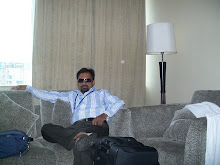Social Change, Human Rights and Cultural Engineering: A study on Dhankut of District Bahraich of U.P. (India)
Dr. Alok Chantia*, Dr. Preeti Misra**
*Lecturer (Anthropology), Sri Jai Narain Post Graduate (KKC) College, Lucknow, U.P.
** Senior Lecturer Human rights, School For Legal Studies, Babasaheb Bhimrao Ambedkar University, Lucknow, U.P.
Key words- Culture, Human rights, Dhankut, Cultural engineering,
Abstract-
Alike other creatures on this earth, human being is different because of his culture. Though human beings have same biological organ and neuron in the brain, but they differ at the level of behaviour from other creatures. When more than two persons show the same behaviour, they form a group, and study of this behaviour in comparison is defined as change , which in reference to culture and society, is sketched as social change. It shows that social change is inevitable process which comes by acculturation, diffusion etc. but in the era of globalization and modernization cultural engineering is more significant to visualize a change within a group instead of above said factors. Cultural engineering is a process of law and human rights, which brings social change in the society. Cultural engineering is like genetic engineering, which is used to form good and healthy genes in the body. Alike genetic engineering, cultural engineering is used to make dignified, equitable, society in the frame of social change. How does cultural engineering act? How it makes its effect in a society? Is cultural engineering effective for expected social change? When all these questions were put before the Dhankut of district Bahraich of U.P., some concrete observations came out. Dhankut, as an endogamous group, is practicing cross cousin and parallel cousin marriage for a long time, even though they are not categorized under the category of SC/ST/OBC. They are poor. They neither have agricultural land nor government services. Education is almost nil amongst them and those who are educated, are not in a position to avail government services in the absence of any reservation policy. They have retained their panchayat system. It is very good effort to examine the effect of cultural engineering on such a group who is living in the middle of the city with as small a population as 2687 (Census 2001).
It is an exploratory cum descriptive work, in which 300 respondents were taken randomly of both sex. All the respondents are above the age of 18 years. This research work was done during 1st April to 30 April 2009
The study revealed that 82% respondents have no faith in the provisions of law and human right covenants because of their unknown origin and poor implementation. 79% think that they should not be called human beings when all basic facilities are away from their lives. 94% respondents are disappointed by their marriage practice. 88% respondents say that all government policies are on the paper. 91% say that government policies have created an environment for their pathetic conditions.87% respondents say that higher caste groups do not recognize them at par with them.
The present study shows that cultural engineering has played a vital role to put a concept of equitable society in India but when we analyze the socio-cultural life of Dhankut of district Bahraich, cultural engineering is almost dead on the parameters of law and human rights. But the knowledge of legal safeguards and provisions of human rights force them to fight for their status in the society. Cultural engineering is very important for social change in Nation-State concept as in case of Dhankut.
*****
Subscribe to:
Post Comments (Atom)

No comments:
Post a Comment